We have collaboratively worked with expert start-up accountants, formation specialists, and our service partners to curate an exceptionally valuable guide, which provides secrets from industry experts to starting a successful business in the UK versus a business that will potentially fail.
Before you jump to the part where we show you the tricks to selecting the most optimal business structure, the various types of business models you can use, and the strategy on how to start a company in the UK with the least risk, even when targeting risky and new trending start-up ideas, you should first understand what the term business actually means.
Understand the Meaning of Business before Opening a Business in the UK
In practical terms, a small business is an entity that deals in an exchange of goods or services in return for an economic benefit, mostly money. All Businesses in the world engage in trading activity for the sole purpose of earning a profit. To start a small business, one can either pursue a start-up home business or one can sell their products or services from office premises.
A business can be classed as a small business, medium business, or large business, which in its easiest form can be classed as per The Department for Business Innovation and Skills (BIS) approved new regulations. The ‘new regulations’ known as the Companies, Partnerships, and Groups (Accounts and Reports) Regulations 2015 revised the existing definition for companies, and now gov.uk defines companies into three classifications. These classifications are small, medium, and large-sized companies; the small one includes a subcategory called micro-entity.
Each business start-up can be classified into one of three company sizes: micro, small, or medium, which may later expand into a large-sized company. A majority of people still fail to understand the key difference between a start-up and a small business venture, which can create issues later on in the process. The differences might be more prominent than you think.
Number of Businesses in the UK
As per data released by the UK Parliament, there were 5.7 million private sector businesses in the UK in 2018. In 2017, there were 27,000 more private-sector businesses than there were in 2018. The data showed that the UK experienced its first year-on-year decline in the number of businesses since it began recording the current series of data in 2000. Some of these small businesses had unique and innovative start-up ideas
2018 had 2.2 million more businesses than in the year 2000, which is 63 per cent more. When you look at the data, you will notice that the proportion of businesses with employees has fallen from close to a third in 2000 to around a quarter. The rise of self-employment has led to a decline in the proportion of employees to employers.
Resources
What are the various types of Businesses?
When it comes to a small business, there are various kinds of businesses. Having an understanding of the types of businesses can make it much easier for business owners to succeed in setting up and growing their business idea successfully. Most business owners have no idea how to start a small business because of insufficient knowledge about the types of businesses.
Having a thorough understanding of the types can help in terms of choosing the most suitable structure for the business, and designing a strong foundation which complements the nature of the product or service being offered. This guide to starting a business in the UK is a step-by-step guide which will help you to start and grow your entity during your business journey as an entrepreneur or a newly self-employed individual. Let’s take a look at the three major types of businesses: service, merchandising, and manufacturing.
Service Business
As the name suggests, the service business provides services to potential customers. Services are also known as intangible products or products which do not possess a physical form. The strategic processes of the services business are different from what other types of small businesses may observe. Examples of service businesses include salons, schools, banks, law firms, accountants, and so on.
Merchandising Business
Merchandising business buys products from wholesalers at wholesale prices. They then resell these products at retail prices. Simply put, they profit by selling products at higher prices than the purchase costs. Examples of merchandising businesses include grocery stores, convenience stores, distributors, and so on.
Small businesses that have been traditional brick-and-mortar businesses are adapting to selling online to remain relevant or to grow their business faster.
Manufacturing Business
The manufacturing business buys products to use as materials to manufacture a new product. These new businesses deal with the transformation of purchased products. Raw material, labour, and factory overheads are combined with a manufacturing business to produce a new product. Goods manufactured in this way are then sold to customers.
The fourth type of business exists, which is known as a Hybrid Business. Hybrid Businesses refer to the kind of business that can be classified into more than a single type of business. However, when push comes to shove, hybrid businesses are classified into one of the three kinds of businesses based on their main business interest.
How to set up a business in the UK: (Step by Step guide)
The trend to be self-employed is increasing day by day in the UK. Young individuals are opting to start selling their products or services by setting up a business in the global business markets. No matter what you are trying to sell a product or service, you must follow these steps for a great startup.
Assess yourself and your Business Idea
If you are considering setting up a new business as your only income source, then you most likely have a business idea to work on. Your idea might be something that already has an existing business model around it, or you might be creating a business idea that is unique in nature.
Regardless of its nature, the business idea you have must be thoroughly analysed and assessed to counter any unforeseen circumstances in future. If your business idea is already something that others are doing, then you must analyse it based on the market of the industry and the competitors to learn their way of working and how you can make it better than theirs.
If your assessment shows that your product or service is way better than the product or service being delivered in the market in terms of speed, quality, and X factor, then you have got a solid idea to work on.
Are you ready to open a business in the UK?
In most cases, starting your own business in the UK can cost you more than you have budgeted for. It may require a lot of planning from your side to set up a business in the UK successfully. You’ll also need to consider where your major strengths and weaknesses are, as these areas might require some additional outlays for bought-in expertise. Our business idea validation checklist below can be a good starting point for anyone who is new to this.
Beyond this basic understanding, if you are starting a business, you need to be passionate about the venture you are embarking upon, if it is going to be successful. It seems trite to say, but passion is perhaps the key ingredient to enabling a new business to succeed. It can drive you on through the energy-sapping process of taking something from inception and into fruition, growth, and flourishing. Once you have confirmed the reliability of the idea, you may now move on to the next step, which is to conduct target market research for the product or service you want to provide.
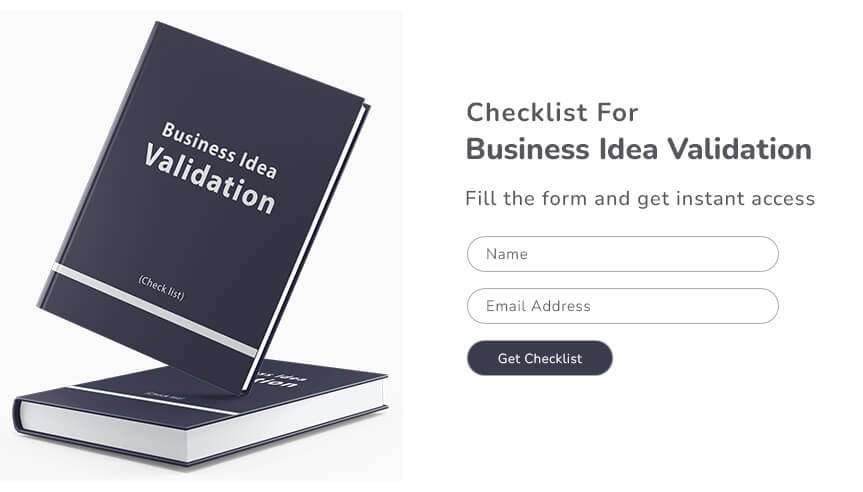
Conduct Market Research
Before you write your business plan, you must work on the potential customers for your product or service and for that, you must conduct market research. It is imperative to analyse consumer behaviour and the economic trends of the industry. Analysing consumer behaviour gives you an insight into what potential customers need to get by buying the products and services the industry is offering.
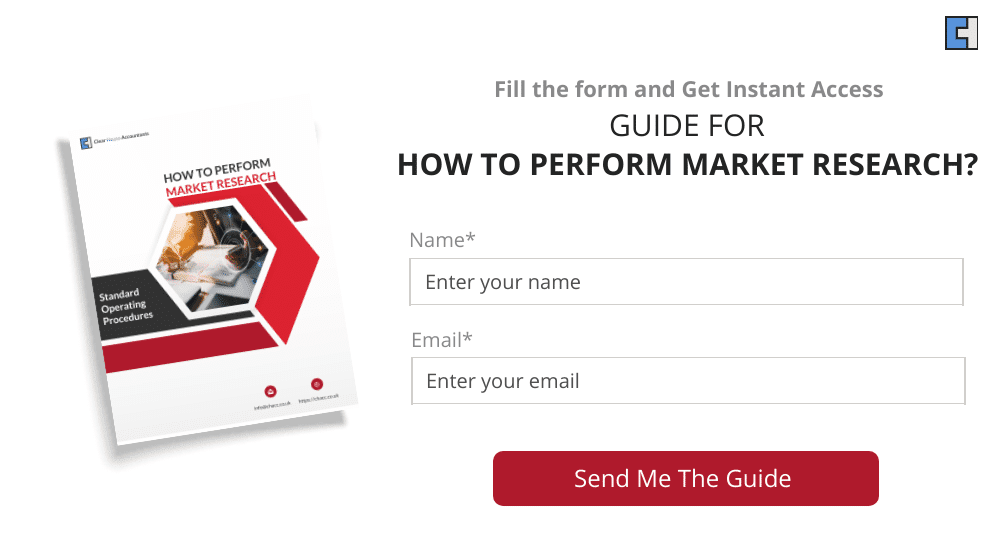
You can rely on the existing information of the industry. However, it might not work in your favour as your products and services may be different from what others are offering in the industry. Therefore, you can conduct your own market research by talking to target customers, conducting a survey, or interviewing focus groups. You must also do a competitive analysis to assess the space in the industry to get your business running smoothly. Thorough market research before you start a new business can reduce the risks and improve your business idea, so that you can move to the next step, which is to create the business plan.
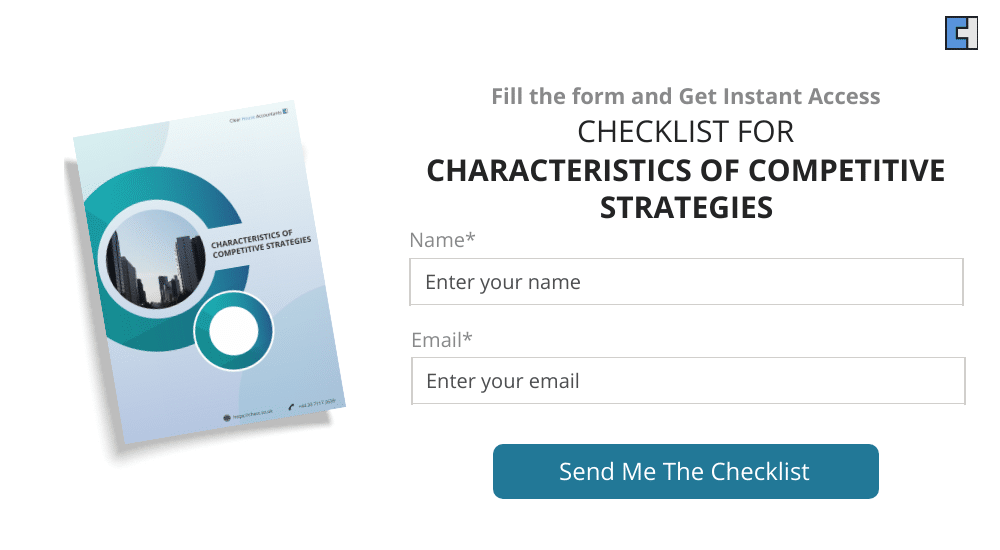
Write a Business Plan
A great business plan is a strategic representation of what and how of your new business idea. It outlines the key objectives that business owners want to achieve with the start of the new business. It covers financial, marketing, and operational aspects to keep your business stronger than anyone else in the industry. This plan is what you can use to onboard stakeholders, angel investors, and partners.
It is crucial to create a business plan that can answer a few of the important questions, like what your business structure would be. Who is going to finance your small business idea? Who are your potential customers, and how will you market your product or services to them? You will want to make a plan that can guide you through each stage and phase of your business. You may want to read the guide on how to write a business plan curated by our expert Accountants service in London.

Choosing the Right Business Structure
One of the most important factors in a business plan before starting a business is to decide on the optimal legal structure of the company. Deciding on the right legal structure from the very beginning will determine how you pay your taxes and the digital reporting of these taxes, which is crucial if you do not want to face any legal penalties.
It is always suggested to take professional business advice as these factors play an important role in how you make profits and how your business advances. It can also help you decide what kind of relief you can offer your investors to enable them to save money and convince them to invest in your business.
The four main types of business structures in the UK come with their own set of rules for taxation and liabilities.
Sole Traders
One of the simplest ways to start a business in the UK is to establish yourself as a sole trader. You will need guidance on how to register for Self-Assessment with HM Revenue & Customs. Along with that, you will need to file a tax return every year (after an initial grace period of one year). It would be better to seek professional tax help if you want to file your tax returns smoothly and hassle-free.
You will get a tax ID when you register your business or yourself with the HMRC self-assessment program to file state tax returns, service for annual accounts, and national insurance contributions. This legal structure may not need to register your business, but the business owner must have a tax ID and must be registered with HMRC to be a sole trader.
Liabilities of Sole Traders
As a sole trader, you will take responsibility for any debts that your business may accrue. This business structure might not be the right option for riskier or larger-scale ventures, as it might not be the most tax-efficient structure. It might not limit your liability, but it can be the quickest and least demanding from a compliance perspective.
Sole traders also need to make sure to keep detailed records of annual accounts to save themselves time when it comes to filing their tax returns or national insurance contributions. Moreover, it is crucial to understand the basics of income tax on your profits and to make national insurance contributions.
If your business has a turnover of £85,000 or more, you are required to register for VAT and pay the applicable tax. Generally, business owners who struggle to understand how to do this hire a competitive personal tax accountant because, if not done correctly, it can cost them a fortune.
Partnerships
Setting up as a ‘General Partnership’ is similar to being a sole trader. However, in a partnership, there are one or more people who share the responsibility for the business debts that may occur along the way. Similarly, business profits are shared as well, and the individual members of the partnership pay taxes on their profit share.
It is important to note that a partner doesn’t have to be a person. A partner can also be a limited company that has a share in the partnership. In the case of a shared partnership, all the shareholders will select a ‘nominated partner.’ The responsibility of this partner would be to register the partnership with HMRC and to make timely delivery of corporation tax returns.
Limited Liability Partnership
In some cases, it is also feasible to opt for a ‘Limited Partnership.’ A limited partnership is different from a General Partnership, which one must understand before starting.
Instead, there are two roles: the ‘general partner’ and the ‘limited partner.’ The general partner is liable if the partnership runs into any debt. The contribution of a limited partner is financial. Hence, they will not have the duty to pay any debts incurred by the other partner.
The third type of partnership is the LLP or Limited Liability Partnership, which has its own liabilities and advantages. It is better to understand all these through our guide on how to run an LLP if you are trying to pursue a limited liability partnership. To set up an LLP, you need an address, an LLP agreement, and, of course, need to register the partnership with Companies House.
Setting up a partnership can be as complicated as your situation; you can hire a competent partnership accounting firm whose online accountants are experts with partnership structures and can help you set up one.
Limited Company
If you decide to proceed with a UK company formation, then setting up a limited company in the UK is your best option. Limited companies, as a company, offer you the greatest legal protection as your finances will be treated separately from the company’s finances. There are, however, differences in the tax and savings of a limited company as compared to a sole trader.
Moreover, there are additional reporting responsibilities that, if not done, can result in severe consequences. You will probably want to get the support of an accountant in the UK company formation process and thereafter with Accounting Services.
When you are opening a business as a limited company, you need to register as an incorporated company with Companies House. Moreover, you will have to file annual accounts and returns in the UK. A good UK formation agent or a good Accounting services UK can ease the process of starting a new company in the UK. Furthermore, they can help to fulfil the compliance requirements of a limited company structure.
Requirements that need to be fulfilled by a limited company
- Every company has a unique name to stand out in the crowd. You must use a name that has not already been taken. The name could end with Ltd,‘ Limited’, or the Welsh equivalents.;
- Limited companies can register their unique business name to avoid future usage or similarities with other limited companies.
- Use a physical UK address as the registered address for the company (in the same country as your company is registered);
- Issue a minimum of one share to a shareholder (there is no limit to the number of shareholders your limited company can have);
- Set up a ‘memorandum and articles of association’ listing the written rules of the company and details of anyone with voting rights in your company or who owns more than 25% of shares.
It is very important to know what business structure is best for setting up a business. It is crucial to know about the various types of small businesses to identify the most compatible structure with the business idea you want to set up.
Marketing Strategy
The next plan you want to make is a marketing plan that includes the approaches you may take to attract your target audience. This is where your Market research and potential client base studies will help you curate a strategy that must evolve and change to fit the needs of the business and its stages. When you are starting a business, you not only need a product, but you also need the right kind of marketing and promotion to reach the maximum number of potential buyers.
Choose a Business Name
Your first step before you create the plan is to choose a business name for your new business. The name must not include any offensive words or similarities to any other registered business name. The business name you choose before starting a business should be according to the guidelines set by the government of the UK, specifically for a business name. As mentioned above, each business structure has different requirements for the name.
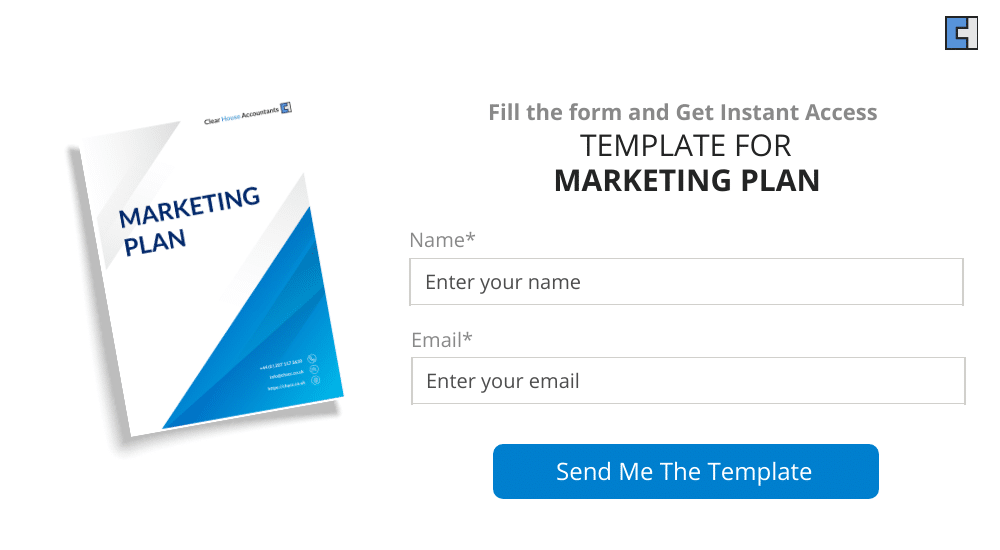
Pick a Business location
You must decide on the location for starting your business, as it plays a vital role in overall success. Location with the best resources and maximum target audience will help you reach your maximum potential quickly. However, there would be a few other things to consider if you are starting up a business in the UK.
There would be a few things to consider if you are deliberating on how to start your own business in the UK. Whether you decide to start a business from home or an office space, it is important to comply with certain rules and regulations. Being in touch with a good London Accountants service can ease the process of understanding complicated rules and processes.
If you are living in rented accommodation and are planning on running your business from home, it is a good idea to notify your landlord. In case you own the house, you should share this information with your mortgage provider. You may need to pay business rates for the part of your home you are using for your business. This is worth checking out via the Valuation Office Agency.
Home as a Business Location
Another important factor to consider if you are running your business from home is the tax allowances you will be entitled to. These allowances include internet, lighting, and phone lines. This can save you some money and will become part of your corporation tax return.
If you plan to run your business in an office space, there are separate factors that need to be considered. For example, if you are planning on running a business from a rented property, there are health and safety standards that you need to ensure your employees’ well-being. These can be the smallest details, like making sure the working environment is comfortable, providing clean toilets, and access to drinking water.
Other Marketing Elements
More and more businesses in the UK now start their marketing way before the business launch to get the brand name out in the industry. This technique helps in creating a familiar image, presence, and authority of the company among potential customers. You can now use low-cost tools for marketing your company or business. For instance, a website can be the best option to start.
Choose a domain name for your business or company. The domain name can be regional or global, depending on what products or services you are providing and the business location. Another way to add to this strategy would be to use social media. Social Media is what most traders use to enhance their marketing game. You may also need to set up a customer service to cater to queries related to your new venture. At the start, you can handle this customer service until you hire staff.
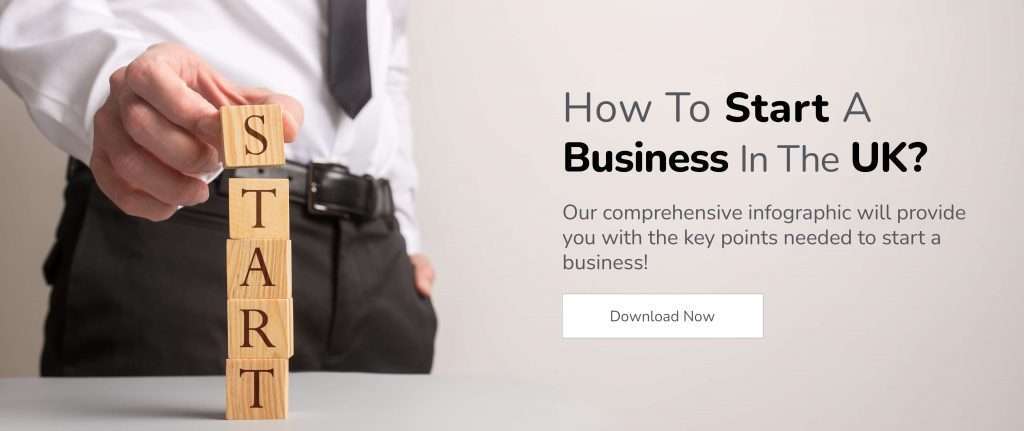
Budgeting and Feasibility Study
Before you start a business, it is important that you know your startup costs. This will later help you in estimating the funds or business loans you need to incur for a successful start. Calculating the costs beforehand will help you estimate the profits, secure a business loan, and attract investors to invest in your company.
Moreover, it will help you save finances with tax estimation. These costs may be different depending on the structure and type of the business. However, there are some common expenses that you will have no matter what.
What are the costs involved in starting a business?
This brings us to the most important factor that needs to be considered: the business cost. We highlighted the importance of cost in the previous sections, especially when you need space to run your business.
Budgeting is an important aspect of running a business. We always recommend speaking to a startup Accountant to help you with the business plan. It is important to contact local accountants to achieve better results.
For instance, if you have chosen London as the prime location for your business, you must contact a recognised London-based Accountant. The local accountants are technically capable and strategically located to help you prepare a better business plan.
It is better to have a detailed budget plan to avoid any surprises in the future. Moreover, it is also best to be well prepared to attract investors or other stakeholders on board when required. Investors generally want to see a business that can survive its cash burn. Learning about the cash flow forecast will help you manage your cash burn in order to have sufficient funds to survive the initial few months.
General Costs to be Considered
While the costs for each business will be different, here are some general costs to be considered:
Registering your company (also known as company incorporation) with Companies House:
- Insurance-related cost
- Staff costs
- Rental costs and council tax
- Utility bills such as heating, water, and phone bills
- Internet bills
- Equipment for your business
- Website maintenance cost
- Accountancy costs
- Legal fees
- Branding and social media advertising cost
- Customer services
One of those expenses is office space. Office space, whether you’re working from home or not, has a set of requirements, like utility bills, internet, equipment, and maintenance. In one way, you are saving some costs, also if you’re working from home, as you are not paying bills for extra space.
You should also estimate the costs for an insurance policy, licenses, permits, and other services you may want to avail of through a business advisor or a lawyer. Some other common costs you must calculate are hiring, market research, company name registration, tax, marketing, and digital presence (website).
Given this long list of costs to consider, make sure you have prepared a well-costed budget before getting started. You will need to make sure that you have the required capital. Moreover, make sure you keep some cash in reserve, as it is inevitable that there will be unexpected expenses along the way.
How will you ensure your business?
No matter what the size of your business is, there may be certain unexpected difficulties that you encounter over the course of time. As part of a contingency plan, it is a good idea to have a relevant insurance plan. Depending on the nature of your business, there may be certain types of insurance plans that you are required to implement.
Insurance procedures can get complicated at times. To start, you may adopt a liability insurance plan, along with the insurance your business is legally required to have. The liability insurance will provide you with sufficient coverage if you are faced with any legal costs.
Alternatively, speak to an insurance broker; they will be your middleman. The insurance broker should be able to guide you through the dos and don’ts of insurance planning.
Get Business Advice
When you start trading in the UK, you can typically register as either a sole trader, a limited company, or a partnership. Whichever option you choose, it’s a good idea to get start-up business advice from an accountant. Before starting, having an expert on board will help to cover all bases of the target market, venture capital, and dealing with the Financial Conduct Authority.
Starting a new business can be both exciting and daunting; it is important to keep a clear head from the outset so that the basic practical decisions you make support your business’s development. If you are in a hurry, why not hire expert startup accountants who will help you set up your business? Moreover, they will connect you with key industry contacts and answer any questions that you may have.

Is Hiring an Accountant Worth It?
Having an expert who has solved similar problems for thousands of others can add immense value to your new business. The worst mistake is not hiring one if you do not know how to start a business and manage it later. An expert can guide you through tough times and difficult decisions in the initial stages of a start-up business. An expert is someone who specialises in working with a certain type of business, e.g. technology accountants would specialise in working with technology businesses and would understand the complexities of their business models, or someone who specialises in working with certain types of problems.
It would be highly advisable to hire an expert accounting firm if you have the funds. There are several reasons for needing an expert accountant to start on the correct foundations while saving money and time.
To hire an accountant, you first have to know about the needs and structure of your business. There are various job roles of a professional accountant and expertise in different fields to help you out precisely. By understanding your business’s structure and needs, you will be able to identify when to hire an accountant and why.
Business Continuity Plan
Since around 30% of new businesses fail during their first two years of operation, understanding yourself is vital if your business is going to be successful. The key cause of business failure is the lack of research at the early stages to make your business a niche area, along with the lack of marketing advice on compatible approaches and leadership failure.
To prevent this, make sure you conduct in-depth research before starting so that you understand the market area you are getting into. Write a business plan and make sure your financing has wiggle room. A decent marketing strategy is a must for a successful business plan.
However, a decent marketing and ideal business model is not the only answer for a successful business start-up. The most important thing is to be prepared for the worst-case scenario, as starting a business can be a risk. Therefore, a business continuity plan is a must before you start your own business in the UK.
Accountants have access to a strong network of capable professionals that you can use to build a strong business foundation. Finding a good accountant could be the perfect way to begin your planning phase for starting a company.
The Importance of a Business Exit Strategy
It may seem unnecessary to think of an exit strategy when starting a small business in the UK. However, having a business exit strategy in place is a crucial component of any business plan to help ensure long-term growth. This will enable better objective setting, better conversations with investors and better planning to maximise the tax efficiency when selling your business rather than ending it at a loss.
Having a business exit plan will lay out options for you to analyse in case of failure. You must learn the art of buying and selling a business to be prepared for any negative impact on your business. It is better to sell your business in exchange for a good amount rather than cry over a ruined business with nothing to gain.
How will you fund your business?
Starting a business is the easy part; keeping it running is what’s hard. A business requires a constant source of funds to run. A business owner needs to be very clear from day one about where the business will get its funds. You might have savings or pursue a business loan, or there might be angel investors who want to help you with the finances. Nonetheless, a business will need a decent amount of cash flow to have a strong foundation.
Now that you have estimated the initial costs you might need to run the business, you should start collecting the required funds. Make sure to collect extra, as the estimation might show some differences.
For the initial startup costs, you can do bootstrapping, that is, to analyse your personal funds and how much you can invest in the company. You may ask your friends and family or use your assets for financing. However, there’s always a risk of losing, so make sure not to use all of your savings in the company you want to start.
Another way to get funds is to attract investors in exchange for company shares or a partnership with the owners. However, legal compliances will differ for each, whether you’re offering shares or a partnership. You may need to look for top crowdfunding platforms to raise funds for a smooth startup.
Register your Startup
Now that you have your company plan set up and your funds ready, you are ready to take the next step towards a successful startup: registering your business or company with the UK government. Legal structures in the UK need different registration requirements that you must provide as a self-employed, partner, or company.
Once you register the business with HMRC or Companies House, you will get the tax id for your business to file and report your tax returns. You need to prepare a few documents, including the trade name, company information, and the corporate structure.
Legal Documentation for a New Business
Each business requires different sets of legal documentation, including licenses and permits. If you are familiar with Brexit, you will definitely have an impact in terms of legal requirements if you are involved with the import and export of goods. Even if not, you must research the required permits and licenses to operate your business. There are many businesses where you will need to obtain legal licenses.
- Child Care Services
- Financial and Credit Services
- Pet Services
- Piercing services
- Goods haulage (HGV)
- Import and export
- Security Services
- Sports services
- Taxi driver
Opening Business Bank Accounts
If you intend to open a business in the UK and get it registered, it is very important to keep your personal and business finances separate. You can do that by opening one or more bank accounts. This will not only reduce administrative and tax implications, but it will also make sure that you build a credit history for your business through the business bank profile.
Down the line, this will help you to get the relevant funds and the financial support that you need. Learning about the best business bank accounts can help you open the most suitable bank account. A separate business account can help you protect your business. It keeps the financial funds of your company separate from your personal finances.
Not only that, but a separate account also gives off the professional image of your company to your clients. You can easily manage your business transactions with this account without mixing up important information. The clear transactions will help you later when you have to report your annual accounts to the concerned authorities.
Video: How to Open a Business Bank Account when starting a business in the UK?
Watch the video to find out everything about opening a business bank account in the UK.
You are Ready
Now, when you follow this guide, step by step, you are ready to implement the business idea in reality. You will now have to start operating the manufacturing or offering the services to the target audience. But How? Are you working on your own, or do you need staff to handle all the different roles in the company?
There is a misconception that being a freelancer or sole trader means they can not hire employees to work for them. Even if you are a sole trader, you might need one or two heads to manage the sales smoothly.
Headcount hunting
Hiring staff has implications in relation to health and safety considerations, along with other crucial factors. However, you will also have other requirements placed on you, whether you are hiring agency workers, freelancers or full-time employees.
In addition, you’ll be required to check that anyone you employ is legally entitled to work in the UK. Make sure to purchase employment insurance as soon as you employ someone. You need to provide written terms and conditions along with job descriptions to any new employee.
Moreover, you must notify HMRC that you’ll be employing people by registering as an employer. In addition, there would be some compliance requirements to process payroll if it’s the first time. Having a professional start-up accountant in London will help you avoid payroll penalties and will save time and money.
Once the staff is hired, retaining them is also important for the growth of a new business. EMI schemes can be an amazing incentive you can offer employees to keep them interested and to reduce employee turnover.
Factors to Consider Before Hiring
There are a few factors to consider before you start hiring staff, that is to:
- Estimate the hiring budget
- The total headcounts you may need to hire
- Target the skills you need
- The market rate of the skills you require
- How will you retain employees
Bookkeeping
Now, when you have hired staff and are ready to work, you are just one step away. And that is to keep your bookkeeping up to the standard of the concerned authorities. Effective Bookkeeping Is what boosts new startups into successful enterprises.
What’s the Quickest Way to Start Strong? – Use a Lean start-up Business Model
The lean start-up business model is all about finding new ideas in the quickest and most efficient way. Furthermore, it refers to bringing that service or product to market using techniques that get rid of redundant processes.
The main principles of Lean Business Start-up are:
- Managed use of Resources. Try to use resources in the most efficient way to showcase the product in front of customers.
- Most Viable Product: The process involves trying out every possible iteration of an idea to produce the most viable product. This procedure is also known as the development of a Minimum Viable Product (MVP).
It is all about learning from these failures and giving your start-up a chance to refine processes to develop the start-up as quickly as possible.
Five tips before you start a business
If you’re keen on starting a business, have a look at these tips based on previous and further information.
Figure out which business works right for you
There are tonnes of opportunities for successful businesses in the world. The thing that you should concern yourself with is finding a need which you can fulfil; something that you want to do. The next step would be to figure out the financial aspects of your business for it to be profitable. Hiring a good Business Accountant from the start can set a strong foundation for your business.
Make sure there is demand and a market for your product.
Never assume that people will want to buy your product or service before doing your research. Research and ask people who are not close to you about their eagerness to buy the product you want to sell. It is important to have as many opinions from several potential buyers, as well as to have a clear vision. A good Accountant in London will be able to help you design a great business plan and also carry out a pricing strategy.
Plan for success
You don’t need to figure out all the details of your project; however, you do need to set an end goal. In addition to an end goal, you also need to figure out what you’ll need to achieve to get there.
Think of the things that you’ll need to accomplish as mini-goals; your plan can change as time flows. However, you need a plan so that you can stay focused and head in the right direction.
Procrastination is the enemy.
Many people will advise you not to move ahead with your plans until you’re sure about every little detail about the business you’d like to start. The problem with this approach is that it results in procrastination.
There will never be a perfect time or situation for you to start your business. The best time was yesterday, or the next best time for a new start-up is now. The benefits of being self-employed cannot be enjoyed until tomorrow. You have to face the pain points as a self-employed individual today so that you can relax tomorrow. \
Don’t go down with your mistakes.
Mistakes are all a part of being human, and you will make mistakes. No one has built a lucrative business without making massive mistakes. Do not dwell on failures, but learn from these mistakes to further implement the changes. Don’t let your failures demoralise you, as every great self-employed business person has got there by making a ton of mistakes.
Conclusion
Starting a business in the UK will be both an exciting and challenging experience. Being your own boss comes with countless rewards, but it also means taking on more responsibility. Deciding on what type of business you wish to set up is an essential starting point and should be undertaken with careful consideration. You also need to think about where you will be running your business, whether you will be hiring staff, getting insurance, and think about a range of other start-up costs.
In addition to practical considerations, make sure you take some time to ensure you are mentally prepared to start your business. A successful business has passion and hard work at its core. Therefore, make sure your idea is something you really believe in and are willing to dedicate your time to. With these key ingredients, some careful planning, and consideration, we’re sure you can make your business a success!
Generally Asked Questions
What are the Key Business Structures when starting a Business in the UK?
The most common business structures are Sole Proprietorship, Limited Liability Company, and Partnership.
How to start up a business?
The quickest method would be to get a product or service ready and start selling if you have a customer base available.
Do I need a Business Plan?
A business plan is a go-to document that explains your business plan in your absence or explains it in detail where you cannot due to time constraints. It is a must-have when you are looking to raise funds, bring on co-founders. Moreover, when you expect to pursue an aggressive growth plan, revisiting this document can help you get back perspective.
What do you need to start a business before setting up a small business?
The key questions you need to ask yourself are:
– Do I have sufficient funds to survive for at least 6 to 8 months?
– Do I have a go-to-market strategy or a customer acquisition strategy?
– Does my business model actually work when tested?
– How do I start a business with limited resources, and in how much time?












































































